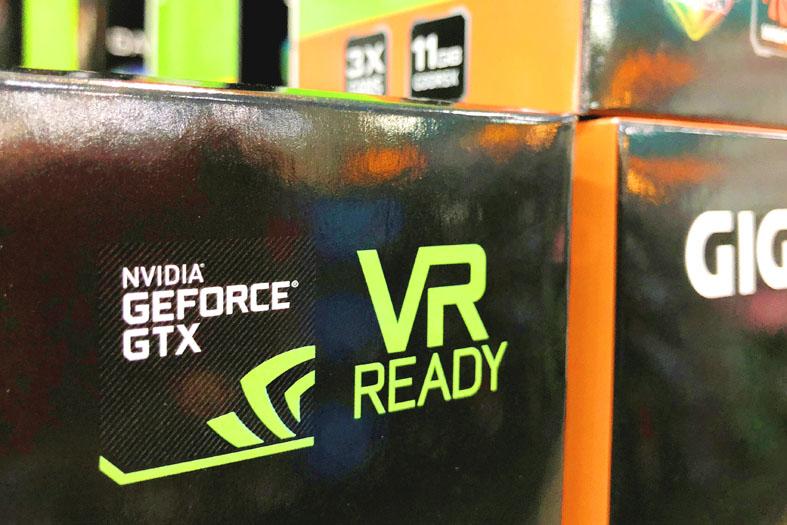Nvidia is likely to seek EU antitrust approval for its US$54 billion takeover of British chip designer Arm early next month, with regulators expected to launch a full-scale investigation after a preliminary review, people familiar with the matter said.
The world’s biggest maker of graphics and artificial-intelligence chips announced the Arm deal last year, sparking an immediate backlash in the semiconductor industry.
Arm has long been a neutral player licensing key intellectual property to customers that are otherwise intense rivals, including Qualcomm Inc, Samsung Electronics Co and Apple Inc.

Photo: Reuters
However, Nvidia said it has garnered the support of Arm customers Broadcom, MediaTek and Marvell, according to a presentation on its Web site.
A request to the European Commission for approval of the deal is to start a 25-working day preliminary review.
Nvidia is unlikely to offer concessions during this period, the sources said, which would then prompt a 90-working day full-scale EU investigation.
Sources told Reuters in June that Nvidia might not be able to meet a March next year deadline for closing its deal due to European regulators’ reluctance to consider the case until after the summer holidays.
The Financial Times earlier reported that the EU was set to launch a formal competition probe into the planned takeover early next month.
Britain’s competition regulator last week said that the deal could damage competition and weaken rivals, and required a further lengthy investigation.
“This transaction will be beneficial to Arm, its licensees, competition and the industry. We are working through the regulatory process and we look forward to engaging with the European Commission to address any concerns they may have,” Nvidia said.
Arm did not immediately respond to a request for comment.
Arm, currently owned by Japan’s Softbank Group, is a major player in global semiconductors, a sector fundamental to technologies from artificial intelligence and quantum computing to 5G telecoms networks. Its designs power nearly every smartphone and millions of other devices.

In Italy’s storied gold-making hubs, jewelers are reworking their designs to trim gold content as they race to blunt the effect of record prices and appeal to shoppers watching their budgets. Gold prices hit a record high on Thursday, surging near US$5,600 an ounce, more than double a year ago as geopolitical concerns and jitters over trade pushed investors toward the safe-haven asset. The rally is putting undue pressure on small artisans as they face mounting demands from customers, including international brands, to produce cheaper items, from signature pieces to wedding rings, according to interviews with four independent jewelers in Italy’s main

Japanese Prime Minister Sanae Takaichi has talked up the benefits of a weaker yen in a campaign speech, adopting a tone at odds with her finance ministry, which has refused to rule out any options to counter excessive foreign exchange volatility. Takaichi later softened her stance, saying she did not have a preference for the yen’s direction. “People say the weak yen is bad right now, but for export industries, it’s a major opportunity,” Takaichi said on Saturday at a rally for Liberal Democratic Party candidate Daishiro Yamagiwa in Kanagawa Prefecture ahead of a snap election on Sunday. “Whether it’s selling food or

CONCERNS: Tech companies investing in AI businesses that purchase their products have raised questions among investors that they are artificially propping up demand Nvidia Corp chief executive officer Jensen Huang (黃仁勳) on Saturday said that the company would be participating in OpenAI’s latest funding round, describing it as potentially “the largest investment we’ve ever made.” “We will invest a great deal of money,” Huang told reporters while visiting Taipei. “I believe in OpenAI. The work that they do is incredible. They’re one of the most consequential companies of our time.” Huang did not say exactly how much Nvidia might contribute, but described the investment as “huge.” “Let Sam announce how much he’s going to raise — it’s for him to decide,” Huang said, referring to OpenAI

Nvidia Corp’s negotiations to invest as much as US$100 billion in OpenAI have broken down, the Wall Street Journal (WSJ) reported, exposing a potential rift between two of the most powerful companies in the artificial intelligence (AI) industry. The discussions stalled after some inside Nvidia expressed concerns about the transaction, the WSJ reported, citing unidentified people familiar with the deliberations. OpenAI makes the popular chatbot ChatGPT, while Nvidia dominates the market for AI processors that help develop such software. The companies announced the agreement in September last year, saying at the time that they had signed a letter of intent for a strategic